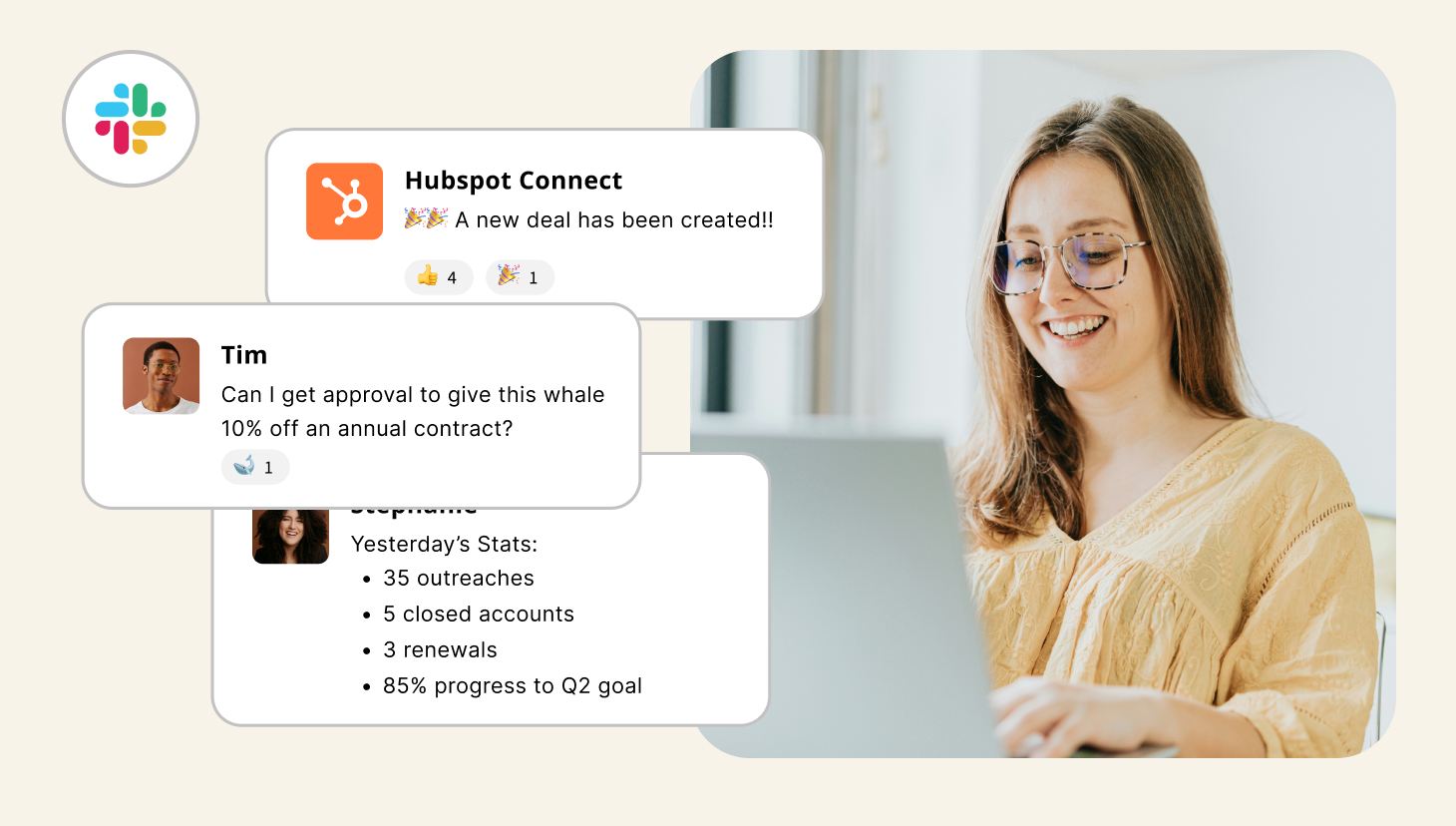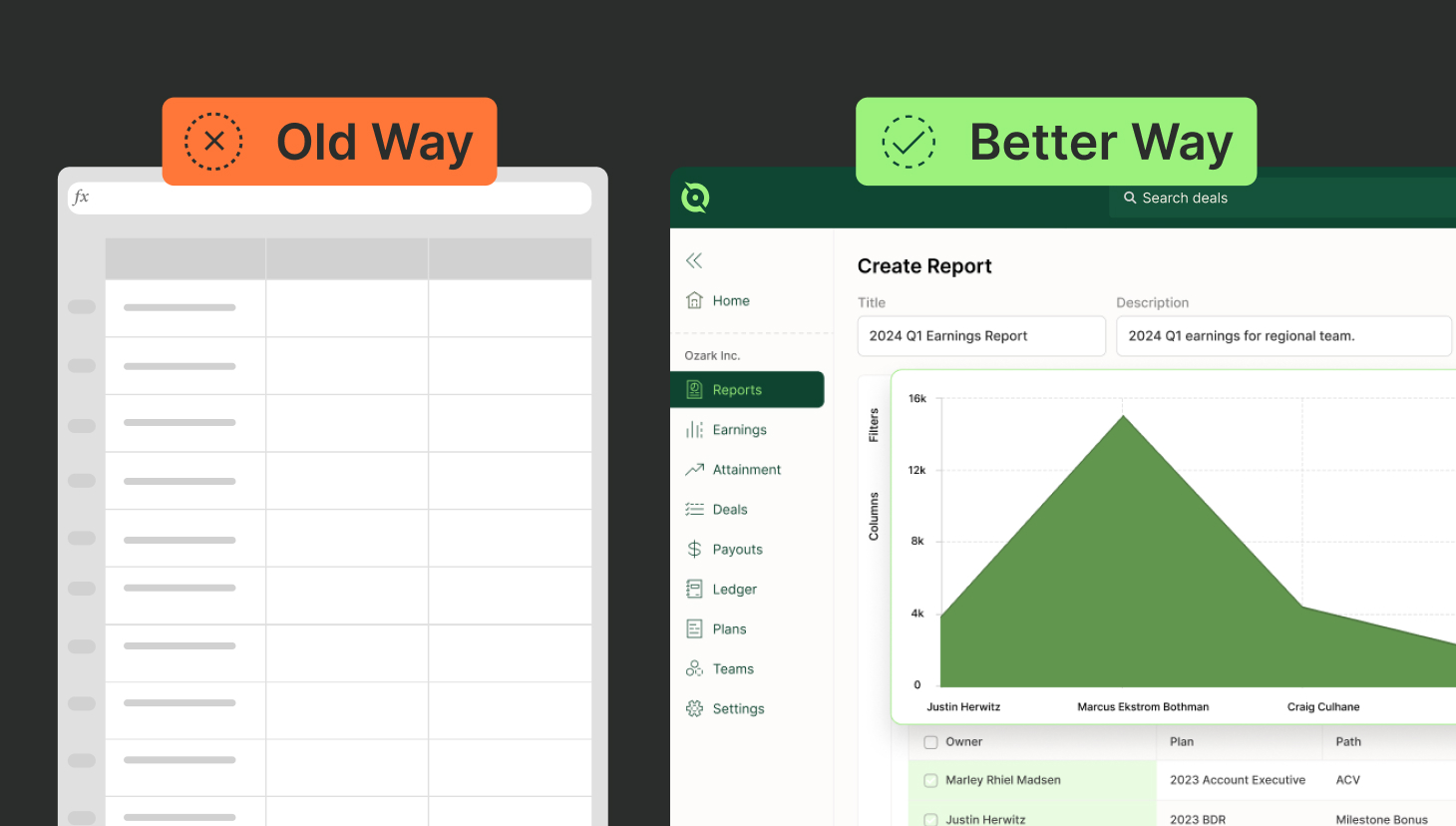No two sales interviews are exactly alike. In some, the focus may be on your experience and education. Other interviewers may be more concerned with seeing if your personality will mesh well with the existing team. But there’s one question that seems to crop up more often than not, and it’s a doozy: “Why sales?”
This question can come in a few different formats. The why sales interview answer is very similar. It seems like such a simple query, but finding the right way to answer this burning question could mean the difference between scoring a new position or going back to the drawing board (or the job board, as the case may be).
Free Sales Commission Calculator Template
A free spreadsheet to simplify the commission tracking process. Track what you or your team have earned in 4 inputs.
Download NowWhy sales? The reasoning behind this common interview question
Sales jobs are all about convincing someone that they need whatever it is you’re trying to sell. That could be software, paper, real estate — almost anything — and during an interview, the commodity you’re trying to sell is yourself. The question “why sales?” is valuable for several reasons:
- It puts your skills to the test. If you can’t convince your interviewer that you’re the best candidate for the job, that could make your potential boss a bit wary. This is your opportunity to showcase your ability to make a product or service shine.
- It separates candidates who do their research from those who don’t. Answer “why sales?” with a clear-cut, well-constructed answer that acknowledges both your own strengths and a few of the company’s key attributes. Do that, and it’ll be apparent that you did your homework before sitting down to chat.
- It reveals what drives you. Sales requires enthusiasm beyond a desire to make tons of cash. When times are slow, what’s going to inspire you to keep working? Let’s say you’re interested in a growing industry like SaaS sales. Are you driven to develop long-lasting relationships with customers to pave the way for upgrades and upsells? Most employers are looking for the big-picture answer to “why sales?,” not just someone who wants to close the big account and move on.
Why sales interview answer
Why are you interested in sales? You need to know the answer to that question before you sit down for your interview. Think of this like an elevator pitch. Develop a short, catchy explanation of what attracts you to sales and why you think you’re going to be good at it. This should be about 30 seconds to a minute long, no more. You’ll likely have a chance to elaborate further, but the idea is to sell yourself without selling.
- Does the challenge of closing a sale get your heart pumping?
- Do you feel strongly about the product or service you’re selling?
- Do you get supercharged by the competitive aspect of beating out your colleagues?
You can tailor your why sales interview answer to the company for which you’re interviewing, too. Check out their website and visit sites like Glassdoor to see what makes the business tick. If employees talk about monthly sales quotas or tiered commission, see if that resonates with you. If so, reference that as you being “committed to surpassing monthly quotas by 10%” or something similar.
Above all, it’s important to be honest. You’re likely interviewing with someone who has been through this process countless times and met with dozens if not hundreds of applicants. They can smell a lie from 10 miles away. In other words, don’t ramble on about your 100% close rate unless you have the cold, hard figures to back it up.
Design, track, and manage variable incentives with QuotaPath. Give your RevOps, finance, and sales teams transparency into sales compensation.
Talk to SalesExamples of great answers to the question
The interviewer may ask “why are you interested in sales?” as soon as you sit down. If you’re brand new to this space, see if you have a personal or professional background that ties into whatever you’d be selling. If so, make that experience the basis of your answer.
Example (assuming you’re applying for a job selling restaurant technology):
Example:
“I spent 10 years as a server and manager in top-tier steakhouses. That includes lots of hands-on time programming and training employees on various POS systems. I know the mechanics. More importantly, I know exactly what owner-operators need and know how to position the product as a solution to those pain points.”
Say you’re experienced in the same industry but want to move from the company you’re at. Talk about what you can bring to the table and why you want to make the switch.
Example:
“My current role includes the entire tri-state area, and I’m very familiar with the territory and potential customers. I would love the opportunity to bring my contacts to Company X and introduce them to a new, more efficient, more affordable product.”
Demonstrate your knowledge of the company. This could mean referencing recent news stories (positive ones only, of course). Or, you could discuss something in the company’s mission statement that aligns with your own core values.
Example:
“I was excited to read about your recent expansion into the international arena and the impending launch of Product XYZ. Having previously worked on a team tasked with marketing products to an international audience, I feel it’s the perfect time to bring my skillset and experience to your company.”
Emphasize skills pertinent to the industry. If you’re applying for SaaS sales jobs, discuss your tech background and willingness to play the long game.
Example:
“Having worked with web-based applications in the past, I’m in a unique position to identify what customers need at every level. I also value customer relationships. Some of my biggest sales came from long-time clients who trusted me enough to invest in upgrades when I recommended a new package.”
Why do you want to work in sales? What not to say:
When it comes to interview questions, sometimes what you don’t say is more important than what you do say.
- “I need the money.” Clearly, someone seeking employment is looking for compensation. Employers understand that you have financial goals you need to meet. That said, money shouldn’t be your only motivator — if it is, don’t admit it.
Anything vague. It’s quite possible to talk a lot without saying anything. That kind of slick, salesy talk won’t work on interviewers who have heard it all. - Complaining about your current boss or disparaging their product/service. No one wants to hire a Negative Nellie. Bad attitudes are not only contagious, they’re toxic. Present the kind of positive, uplifting energy that helps entire teams succeed. After all, one person does not a sales department make. Remember, a rising tide lifts all boats.
- Any references to “always be closing.” The idea that sales is about talking customers into products they don’t necessarily need is ethically questionable and quite outdated. Modern-day sales techniques are more about addressing the clients’ needs and shifting the sales pitch to match those concerns and priorities.
“Why sales?” is one of the top interview questions for good reason. It gives discerning employers insight into applicants’ motivations and helps them evaluate preparedness. For job seekers, the question is an opportunity to highlight their best assets. Master this question and you’ll stand out from other candidates for all the right reasons.
Questions sales candidates should ask during an interview
Now that we’ve got your interview responses sorted out, let’s explore some of the questions you should ask the interviewer.
- Can you tell me more about the sales team and their roles?
- What are the main challenges facing the sales team currently?
- How is performance measured and what are the expectations for the role?
- What percentage of the sales team is hitting quota?
- Can you tell me more about the company’s sales process and how new sales representatives are trained?
- Can you provide examples of successful sales campaigns or initiatives?
- Can you tell me more about the company’s products/services and target market?
- How does the company support its sales team in terms of technology and resources?
- Can you tell me about the company culture and how it relates to the sales team?
- Can you tell me about opportunities for growth and advancement within the sales team?
Happy interviewing!
About QuotaPath
QuotaPath’s commission tracking and sales compensation management software automates and simplifies tracking, calculating and paying out sales commissions. Teams who see the most value from our platform already track their deals using a CRM and have between 20 and 250 employees with plans to grow. Learn more by scheduling a time with our team.



